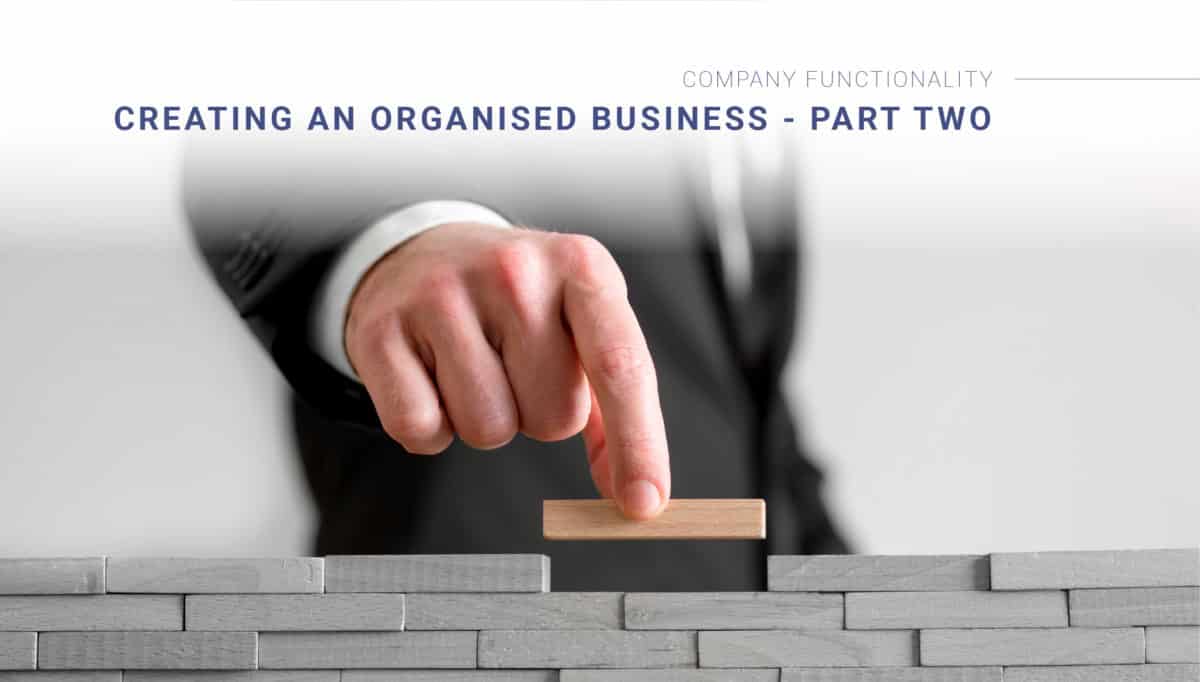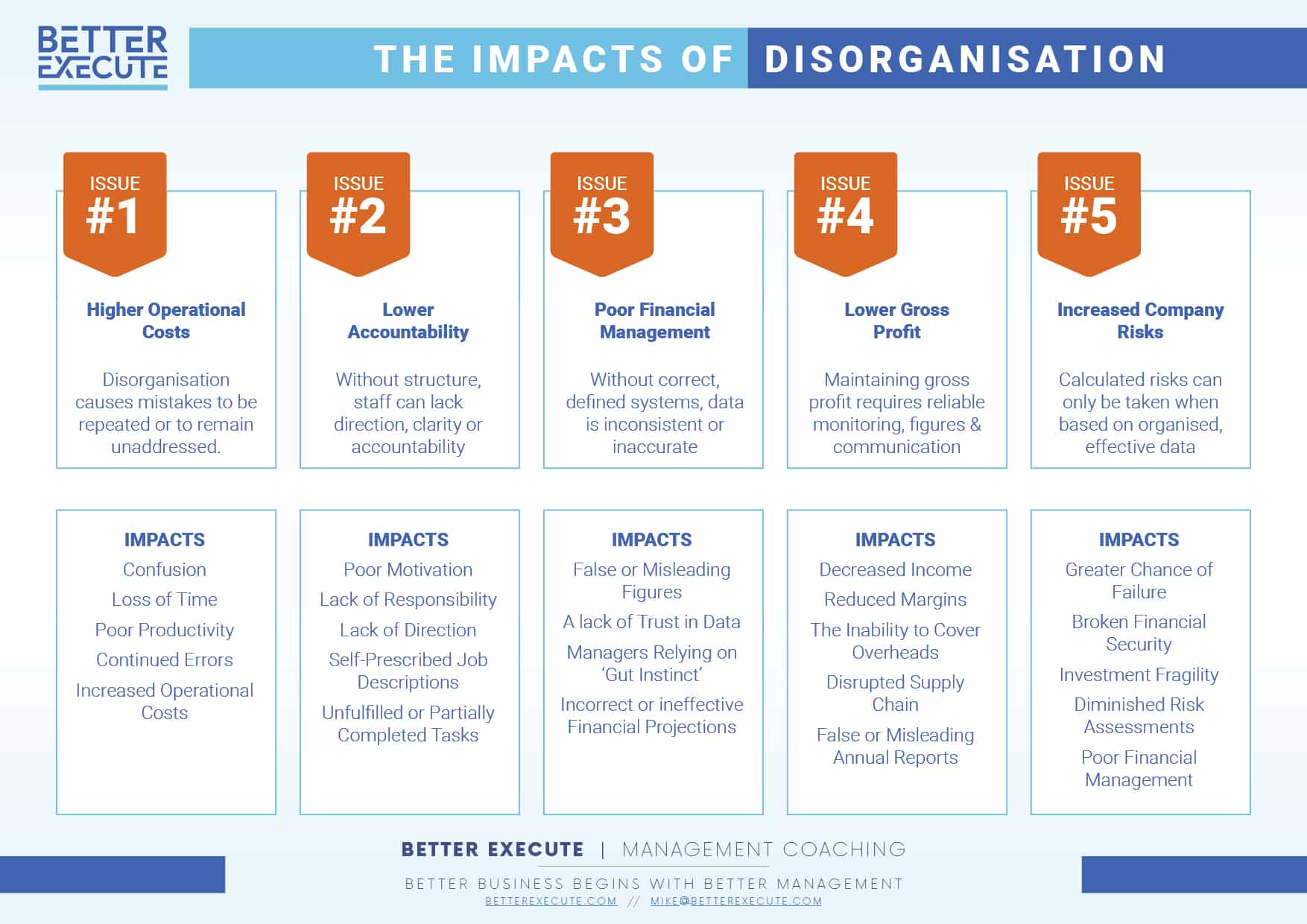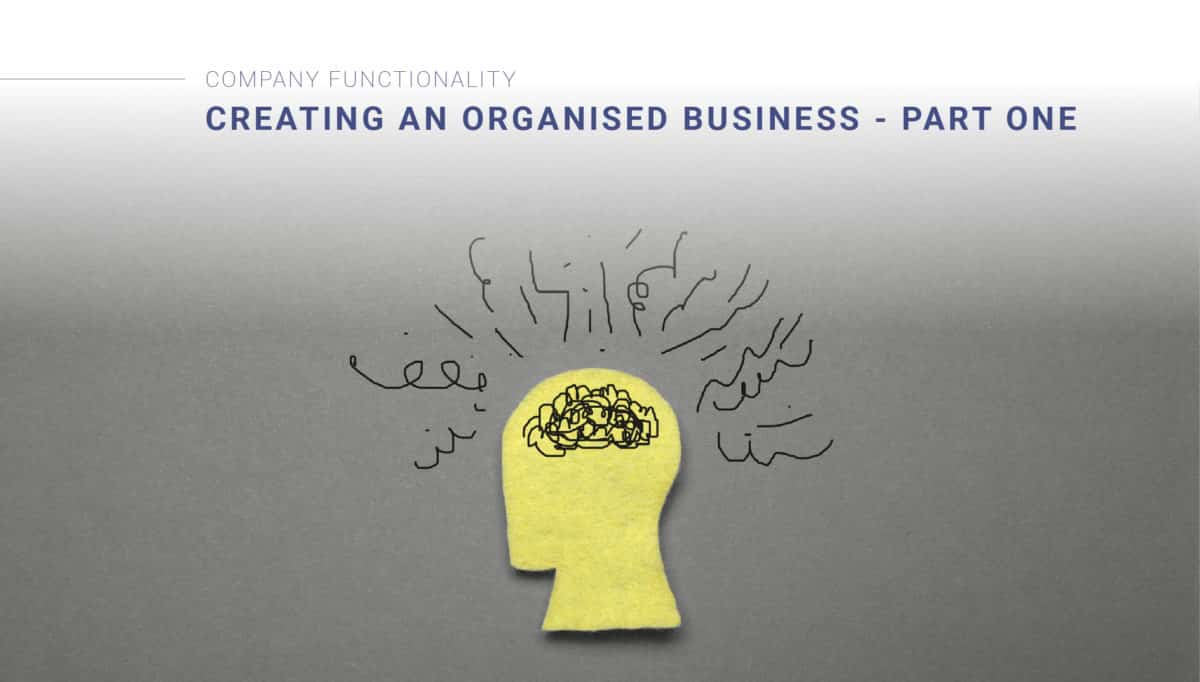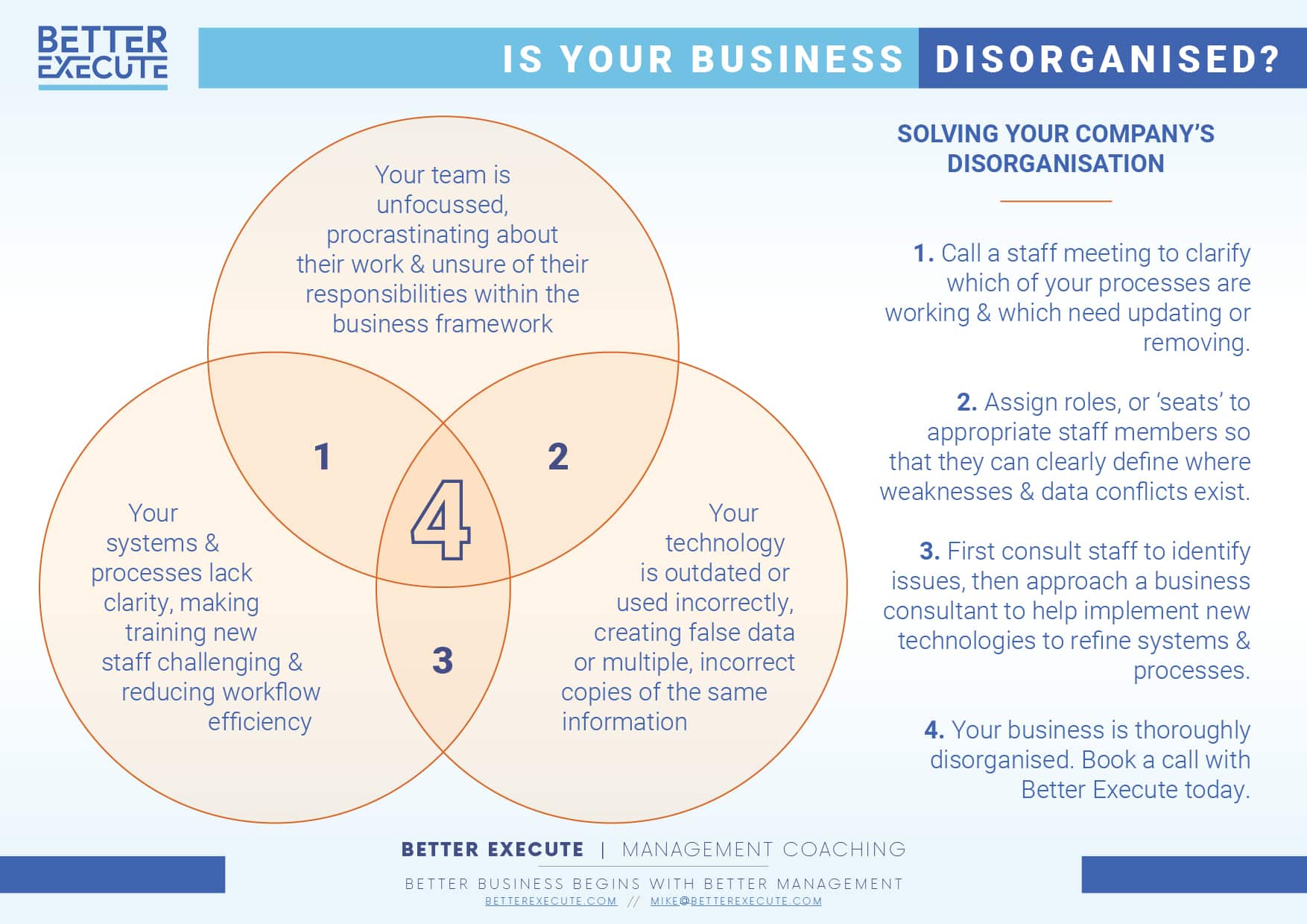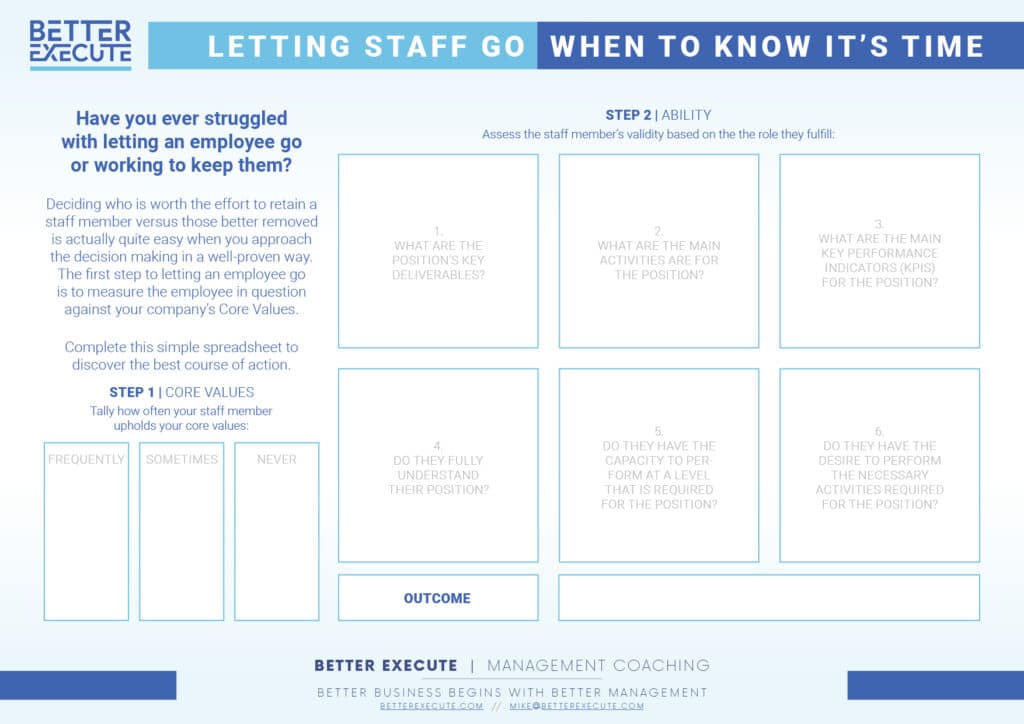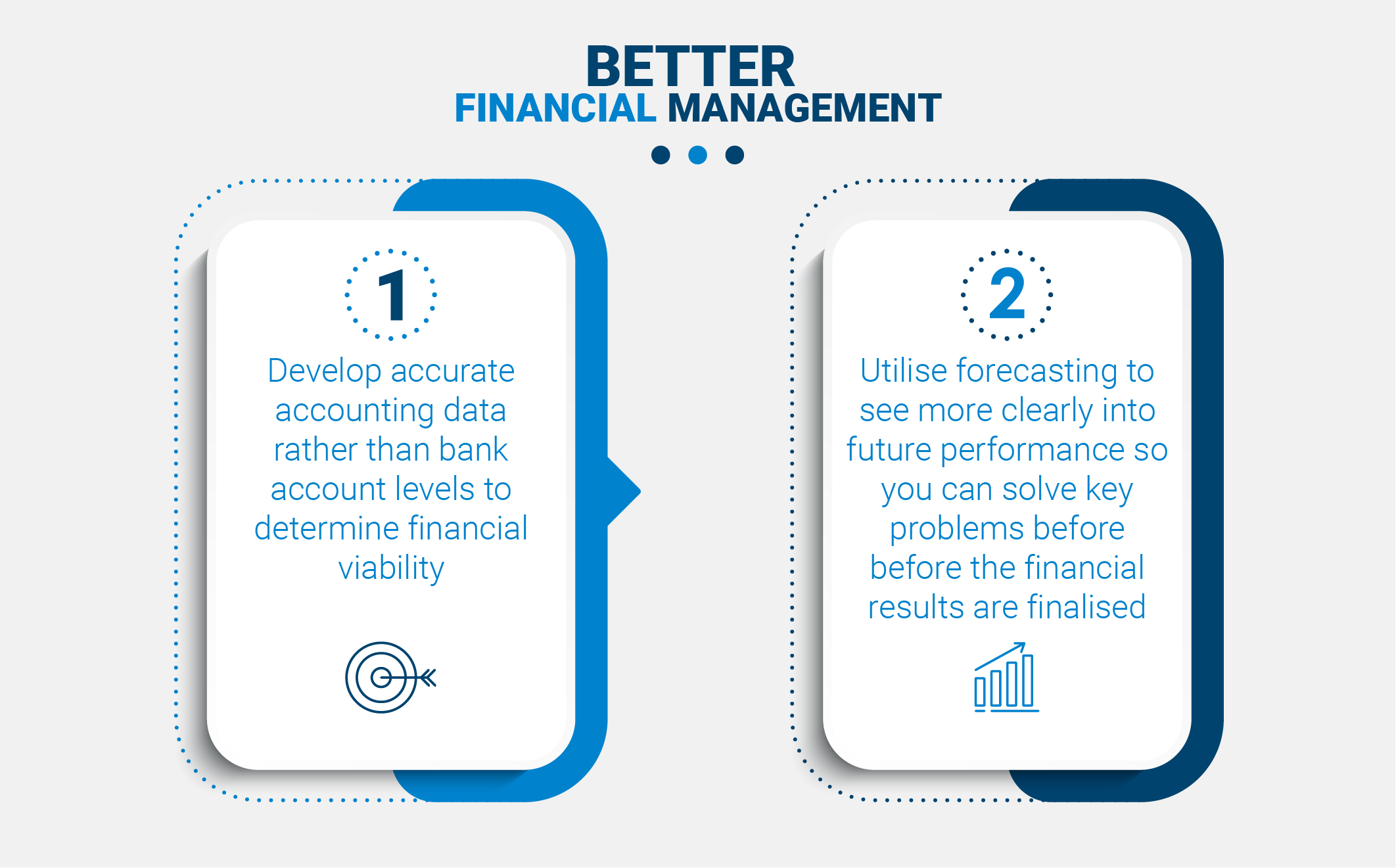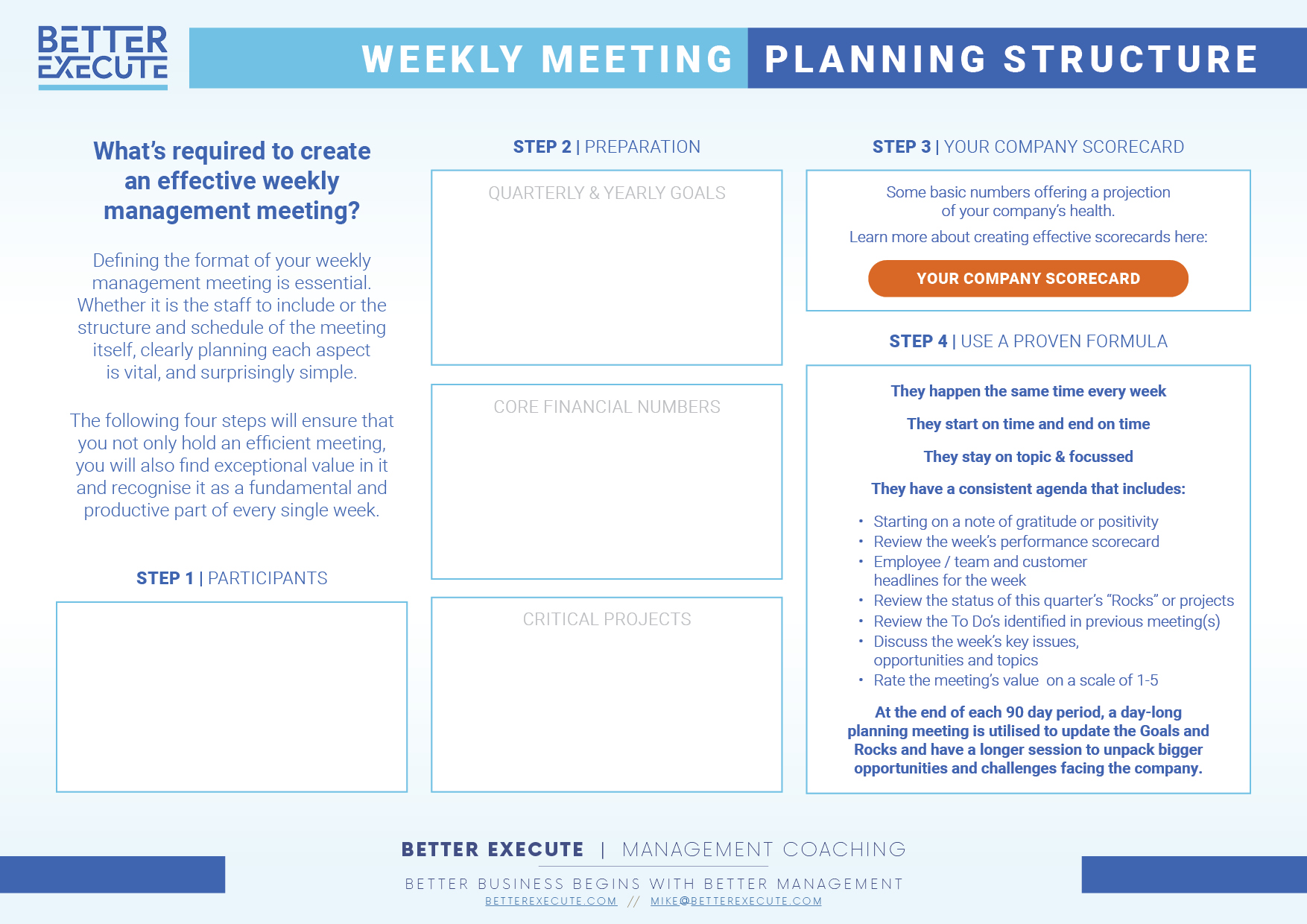Company organisation can easily slip away from you.
Poorly implemented or maintained systems, changing staff members and lazy shortcuts can all add up to creating major issues within your business. Even when not an issue in and of itself, poor company organisation can be problematic when you are presenting your business to potential investors, or when introducing new staff members.
One of the issues is that if you have longstanding company organisation issues, they are often overlooked, ignored or adopted by new team members as ‘the norm’, so the insipid issues are left to fester indefinitely.
In part two of my new three-part guide, we will investigate the numerous problems that a disorganised company may have. These issues detail where your company may be falling short of its potential, but also provide red flags that can help you avoid significant repercussions.
The Problems Disorganised Companies Have:
They say the first step in solving a problem it is acknowledging you have a problem. If, after last week’s blog, you are now feeling your business is a bit out of shape, it often helps to further clarify why you may want to tighten up certain areas, systems or processes. This requires becoming more clear on the problems associated with an ‘out of shape’ business.
It is likely obvious to you that the costs and problems stemming from a disorganised business are numerous. For the sake of keeping this article as brief as possible while attempting to create as much value for you as possible, we will identify some of the more interesting problems that come when trying to run a disorganised company.
Higher Operational Costs
When the same mistakes are repeated, more people are required to complete a set amount of work. If technology or systems aren’t fully utilised, it leads to confusion, increased operational costs, inferior productivity and fewer results.
Lower Accountability
When there isn’t agreement on what is specifically expected from an employee, it is difficult to hold them accountable for specific results. When this lack of clarity persists for an extended period the employee often defines a self-prescribed comfortable job description that is not optimal for the company.
More Difficulty Managing Cash
To forecast your cashflow accurately you need accurate financial data. In order to achieve this you need people following the correct processes and disciplines to enter and reconcile the data correctly. This is rarely the case with disorderly companies.
When these financial management activities don’t occur correctly or consistently the financial data quickly degrades to the point where it is not trusted or utilised. The end result is that cashflow and profitability are monitored by gut instinct, which is nearly always wrong, especially as the company grows and the figures increase.
Lower Profitability
Gross profit requires consistent monitoring and communication. Disorganised companies often disregard current Gross Profit numbers, making it impossible to identify and fix issues as they arise in sales or production processes.
Unfit companies often don’t know how much money they are actually making until viewing their annual financial reports. This is not an ideal way to optimise a company’s profitability.
Greater Risk
Not surprisingly, when you are paying more than necessary to maintain a functional company, there isn’t clarity on how the company is performing. This includes diminished risk assessments, poor financial management and a greater potential for problems that can put the business at risk.
At this point, it is likely becoming apparent that the cost of sustaining poor company organisation is significant. Now let’s turn our attention to working through what’s required to have a tight business – one you are happy present to potential clients, investors or employees.
Next week, we will investigate what goes into creating a well-organised company, but for now it is important to address what you are likely thinking:
“Of course I’d like to have a more organised company; I simply can’t afford the time and potential cost of getting my business to that point!”
So let’s address that first.
Abraham Lincoln famously said, “If I only had an hour to chop down a tree, I would spend the first 45 minutes sharpening my axe.” The classic mistake most entrepreneurs make is taking a ‘Ready-Fire-Aim’ approach to activities within their business. This creates a significant waste of time, money and energy that is impossible tough calculate. Getting your company organised, fit and healthy doesn’t and shouldn’t happen overnight – but with efficient and well-executed planning it can progress smoothly and steadily for resounding and noticeable results.
When I’m invited into companies to improve profitability and/or productivity, nine times out of ten we begin by removing activities or processes that aren’t producing the desired results. And when then adding more effective activities, we take a ‘measure twice cut once’ approach ensuring we are only adding productive strategies rather than reactive, unclear, or poorly-executed activities.
Much of this clarity comes from having a defined framework with which to manage your company. What is the management framework you are using for your company? If you can’t name it, it likely doesn’t exist. If this is the case, it’s likely because you’ve never attended a course or training that describes a practical and applicable management framework. It’s somewhat ironic that we don’t receive an operating manual for the vehicle that is supposed to protect our business’s and family’s future.
Regardless of whether you have a business operating system, you can always refine your company organisation so it will run more profitably and display better potential to buyers, investors, bankers and key employees.
Next week, I will share a method to do so that can be both efficient and affordable to any business.
If you’re in any doubt as to your company’s health or how to begin creating a business operating system, explore my website further, or book a FREE 60-minute consultation today.
